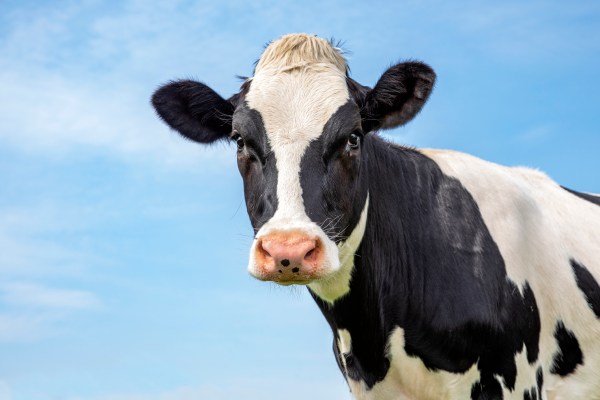What do iconic Valley investors Zachary Bogue and Chris Sacca have in common? They are both trying to stop cows from burping methane. What gives?
With the conclusion of COP28, the global talks on the climate crisis, methane is going up the climate tech agenda for investors and startups.
Emissions from livestock are the main source of agricultural methane, accounting for roughly one-third of all methane emissions, and most of those are not from the part of the cow you’d expect. In fact, it’s from cow burps.
When cows process their feed, they literally breathe out methane gas as part of the rumination process, allowing them to digest the grass and hay which other animals, including us, are unable to digest.
And it’s these emissions that agricultural tech and bio tech companies are now starting to target. There is plenty of pressure to do so. Indeed, six of the largest names in dairy farming recently pledged to begin disclosing their methane gas emissions and others are expected to join the scheme. And one of the bigger issues at the most recent COP meeting was a pledge to reduce methane emissions, which are growing rapidly.
Methane gas is by far the worst of all the greenhouse gases — far worse than CO2, as methane traps more heat in the atmosphere per molecule than carbon dioxide.
The gas stays in the atmosphere for around 12 years — compared to hundreds of years for carbon dioxide — but has roughly 80 times the heating effect of carbon dioxide over 20 years and 27 times more over a 100 years, according to the Expert Panel on Livestock Methane 2023.
Its reduction is therefore seen as key to the climate crisis fight. Indeed, there is even a satellite-based “Methane Alert and Response System” (MARS), announced by the UN last year.
And a major UN report said “urgent steps” are necessary to reduce methane if global warming is to be kept within a manageable limit.
Now a U.K. company thinks it can tackle the issue.
U.K. biotech startup Mootral has raised $48.9 million to date. That figure consists of a Seed round of $11.2 million from investors Lowercarbon Capital (the climate VC started by Chris Sacca), Earthshot Ventures, Kindred Ventures, Third Derivative, Climactic and Climate Capital; a Series A of $12.8 million (led by King Philanthropies which invested $10 million); and a pre-seed family office investment by Thomas Hafner and Carin Beumer of $24.9 million.
In a statement, Mootral says it is aiming to scale to feeding 300 million cows with its feed additive by 2033, and claims it could potentially deliver up to 50% methane reductions by 2025 — that’s quite some claim.
Thomas Hafner, founder and CEO of Mootral, told me over a call that he aims to “deliver immediate, permanent reductions in methane emissions — and this is happening on farms today.”
“The next generation of products needs to be at the milligram scale. Our next generation will do even better. We’re looking to get that up to even 90% reduction.”
Mootral also has a scheme called “CowCredits” whereby farmers can take advantage of the carbon credit markets as they reduce the methane emissions of their herd. ClimatePartner, a company that finances climate projects via carbon credits, has signed up to have Mootral in its portfolio of options for clients.
The company says its Enterix product (manufactured in Wales) has been trialed at farms in the U.K. and the results published across academic journals, including the Open Journal of Animal Science, Frontiers in Microbiology, The Journal of Animal Science and Translational Animal Science.
So how does it work? A dairy cow emits around 500 liters of methane daily, accounting for approximately 3.7 tonnes of CO2eq per year. Mootral says its current Ruminant supplement can reduce methane emissions from dairy cows by up to 38% on commercial farms.
One of its competitors is CH4 Global, which raised $29 million in its most recent funding round. CH4 Global — which is backed by the aforementioned Zachary Bogue of DCVC — employs seaweed in cow feed to reduce their methane emissions.
Steve Meller, CEO of CH4 Global, said via an email that the company is leveraging this “aquaculture” to address the issue: “We have addressed the demand area through already announced commercial partnerships for South Korea with Lotte for 4 million cattle and a soon to be announced global agriculture company for 9.5 million cattle supply. These two combined result in approximately 80 million tonnes CO2e reductions.”
He claimed the feed additive line from CH4 Global (called Methane Tamer) contains Asparagopsis, which the company claims can reduce methane emissions from cows by as much as 90%.
Another player in the space is DSM, a Dutch multinational, which recently said it would monitor the environmental footprint of food products containing animal proteins.
Whatever the case, it’s clear the climate tech space is overlapping with agtech in unexpected ways in the fight against the climate crisis.
